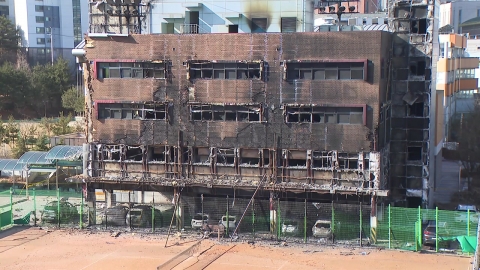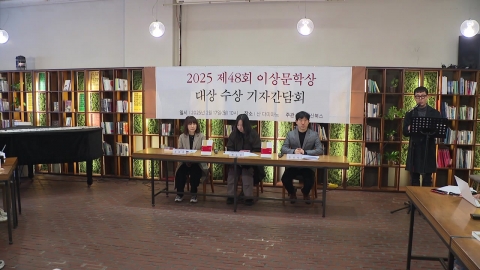-
인권위, 오늘 여인형 등 내란혐의 장군 4명 '긴급구제' 논의재생

-
국가인권위원회가 오늘(18일) 여인형 전 방첩사령관 등 내란 혐의를 받는 장군 4명에 대한 긴급 구제를 논의하기 위해 예정에 없던 군인권소위원회를 소집했습니다. '윤 대통령 방어권' 안건 의결로 한 차례 홍역을 치른 인권위가 이번에도 발 빠르게 움직이면서 논란이 계속되고 있습니다. 이현정 기자입니다. [기자] 국가인권위원회가 여인형·이진우·곽종근·문상호 등 내란 혐의를 받는 장군 4명의 긴급구제를 논의하기 위해 예정에 없던 임시 군인권소위원회를 소집했습니다. YTN 취재결과, 긴급구제 신청서는 군사법원이 장군들의 일반인 접견 금지와 공개 장소 수갑착용을 풀어야 한다는 게 주된 내용인 것으로 파악됐습니다. 김용현 전 국방부 장관의 대리인이자 전 자유통일당 대표인 고영일 변호사가 지난 13일 제삼자 진정 형식으로 신청서를 제출했는데, 이후 인권위 조치도 빠르게 진행됐습니다. 군 구금 시설 조사는 접수 하루 만에 끝났고, 당초 오는 26일로 예정됐던 군인권소위원회도 오늘(18일)로 앞당겨졌습니다. 소위는 김용원·한석훈·이한별·강정혜 등 '윤 대통령 방어권' 보장 안건에 찬성표를 던진 위원 4명으로 구성된 만큼, 오늘 의결도 유력해 보입니다. [김용원 / 인권위 상임위원 (YTN 통화) : 무슨 조치를 하는 거라면 당연히 그 부분은 공개되고 또 보도자료도 나오고 이렇게 되겠죠. 신속하게 할 예정입니다.] 다만, 인권위의 구금시설 조사를 거부한 장군도 있는 것으로 알려진 가운데, 일부 장군의 경우 법원이 이미 접견 제한이 과도하다는 항고를 부분적으로 받아들인 것으로 파악됐습니다. 앞서 채 상병 사건과 관련한 박정훈 대령의 긴급구제 신청과 진정사건은 모두 기각했던 인권위가 이번에는 신속하게 움직이는 것을 두고 비판의 목소리도 나옵니다. [원민경 / 인권위 비상임위원(YTN 통화) : (그동안) 사안의 급박성을 이유로 임시소위가 개최되지 않았는데, 내란죄 피고인들에 대한 긴급구제 신청이 들어오자마자 조사관을 급파하고….] '윤 대통령 방어권 안건' 의결부터 내란 혐의 장군들에 대한 긴급구제 논의까지, 탄핵 국면 속 인권위를 둘러싼 논란은 계속 커지고 있습니다. YTN 이현정입니다. 영상편집: 윤용준 디자인: 이원희 ※ '당신의 제보가 뉴스가 됩니다' [카카오톡] YTN 검색해 채널 추가 [전화] 02-398-8585 [메일] social@ytn.co.kr
-
명태균 "김 여사, 공천 도우라 했다"…"사실무근"재생
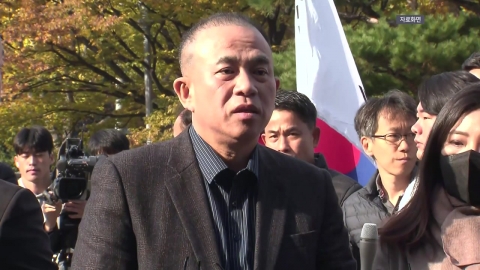
-
윤석열 대통령 부부 공천 개입 의혹의 핵심 인물이죠, 구속 수감 중인 명태균 씨가 변호인을 통해 추가 의혹을 제기했습니다. 지난 총선 당시 김건희 여사가 현직 검사의 공천을 도와달라고 했다는 주장을 내놓았는데, 언급된 관련 인물들은 사실이 아니라고 반박했습니다. 김현아 기자가 보도합니다. [기자] 명태균 씨 변호인이 '김건희 여사와 마지막 텔레그램 통화 48분'이라는 제목의 글을 공개했습니다. 명 씨가 김건희 여사와 지난해 2월 16일부터 19일까지 대여섯 차례 통화한 내용을 복기했다는 겁니다. 명 씨는 이른바 '복기록'에서 김 여사가 김상민 검사가 조국 수사 때 정말 고생을 많이 했다며 경남 창원시 의창구 국회의원이 될 수 있게 도와달라, 박완수 경남지사에게도 김 검사를 도우라 해놨다고 말했고, 자신이 그 제안을 거절했다고 주장했습니다. 또, 김건희 여사가 당시 윤한홍 의원이 김 검사 공천에 동의했다고 말했다고도 전했는데, 윤 의원과 박완수 지사는 모두 사실이 아니라며 그 무렵 "김 여사와 소통한 사실 자체가 없다"고 반박했습니다. 명 씨 변호인은 실제로 통화 녹음파일이 존재하느냐는 질문에는, "명태균의 입이 곧 증거"라며 "녹음파일 존재 여부는 알 수 없다"고 말했습니다. 김 전 검사는 현직 신분이던 지난해 1월 총선에 나섰지만, 국민의힘 경선 과정에서 컷오프됐습니다. YTN 김현아입니다. 영상편집;마영후 디자인;임샛별 ※ '당신의 제보가 뉴스가 됩니다' [카카오톡] YTN 검색해 채널 추가 [전화] 02-398-8585 [메일] social@ytn.co.kr
-
"방어권 보장" vs "사유 없어"…헌재, 기일 변경 고심재생
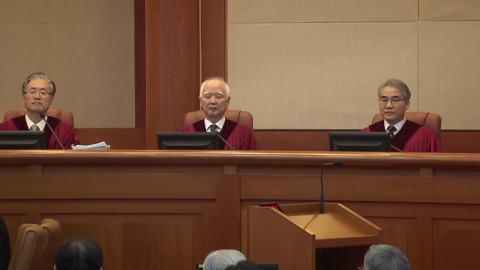
-
헌법재판소가 윤석열 대통령의 탄핵 심판 열 번째 변론 기일을 변경할지 고심하고 있습니다. 방어권을 보장해야 한다는 윤석열 대통령 측 주장에 대해 국회 측은 날짜를 바꿀 이유가 없다는 의견서로 반박했습니다. 김영수 기자가 보도합니다. [기자] 윤석열 대통령 측은 오는 20일, 10차 변론이 지정되자마자 형사재판 공판준비기일과 구속취소 심문이 잡혀있다는 이유로 기일 변경을 신청했습니다. 윤 대통령이 직접 구속취소 심문에 출석하는 것까지 검토하는 상황이라, 동시에 대응하기 어렵다는 취지였습니다. 헌법재판소는 주말이 지난 뒤에도 결론을 내리지 못했는데, 그 사이 국회 측이 기일을 변경할 사유가 없다며 정식 의견서를 제출했습니다. 형사재판은 오전이고 탄핵심판은 오후라 시간이 완전히 겹치지 않는 데다, 대리인 숫자도 적지 않아 기일까지 변경할 필요가 없다는 주장입니다. 또 만약 변론을 미루더라도 바로 다음 날이나, 25일로 지정해달라면서 대신 오전부터 변론을 열어달라고 요청했습니다. 헌법재판소는 재판관 평의를 통해 양측의 의견을 종합해 최종 결정을 내리게 되는데, 9차 변론 과정에서 직접 공지할 가능성도 있습니다. 윤 대통령 측이 앞서 공개적으로 불공정한 심리라고 직격한 만큼 방어권을 보장해달라는 주장을 재판부가 쉽게 넘기기 어려운 게 사실입니다. 앞서 헌재는 한 차례 기각했던 한덕수 국무총리에 대한 대통령 측의 증인 신청을 받아들이기도 했습니다. 20일 기일 변경을 고심하고 있는 헌재는 다만 피청구인인 윤 대통령의 출석 의무는 없고, 증인도 아니어서 출석 여부에 따라서 절차 진행이 달라지지 않을 것으로 보인다고 덧붙였습니다. YTN 김영수입니다. ※ '당신의 제보가 뉴스가 됩니다' [카카오톡] YTN 검색해 채널 추가 [전화] 02-398-8585 [메일] social@ytn.co.kr





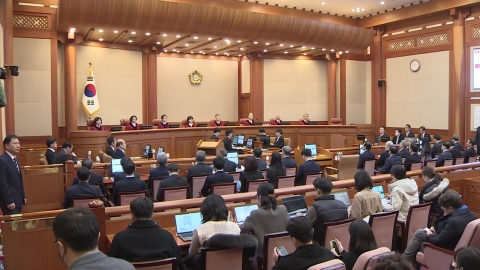



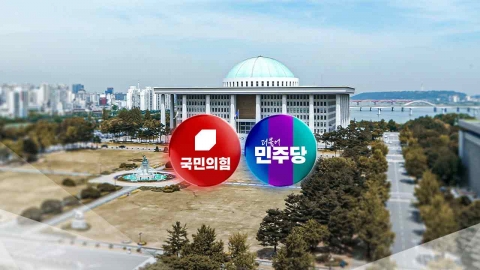
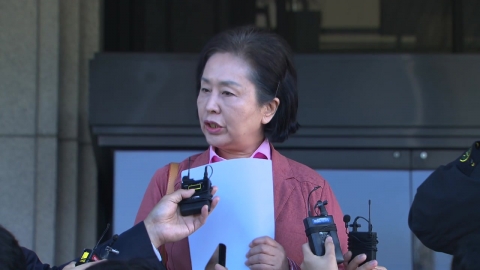
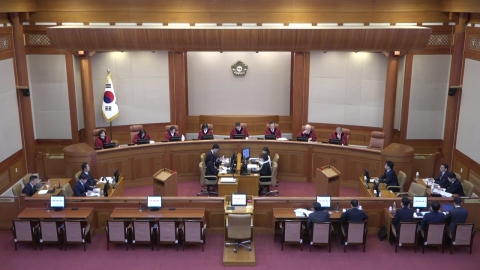
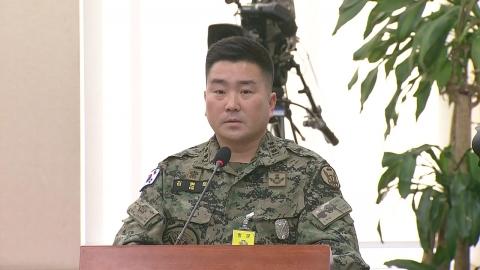
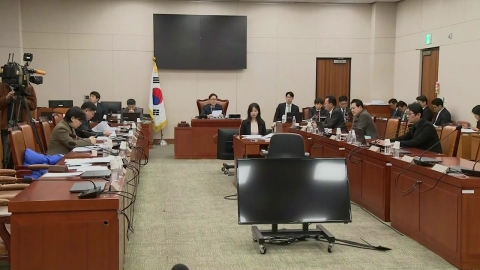

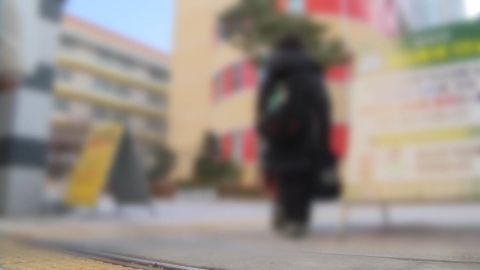
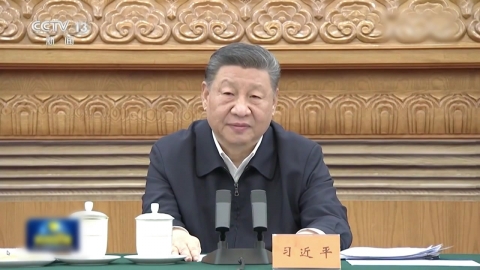
![[날씨] '우수' 무색한 강추위, 오늘 더 춥다…체감 -10℃↓](https://image.ytn.co.kr/general/jpg/2025/0218/202502180110554121_h.jpg)

